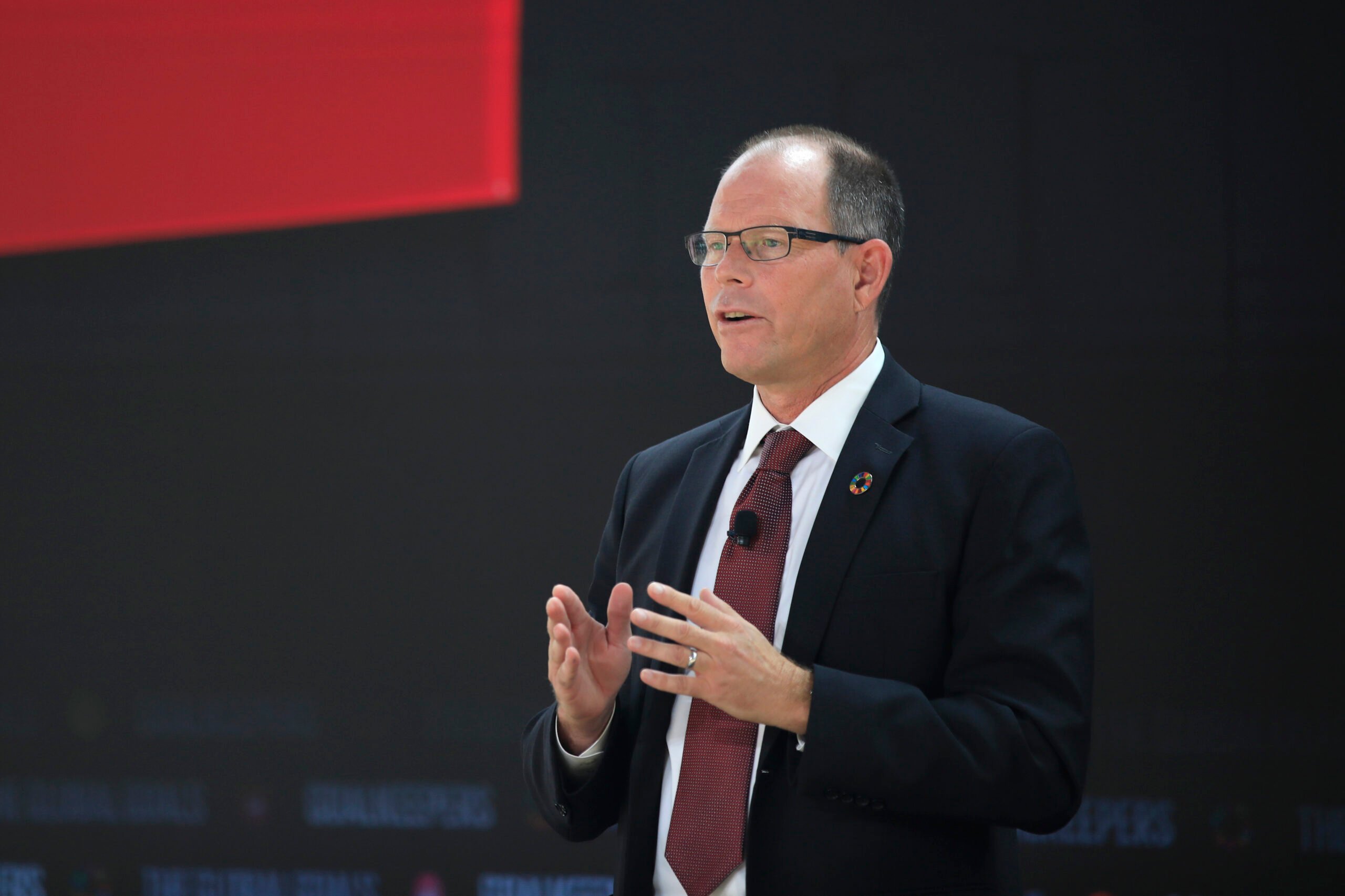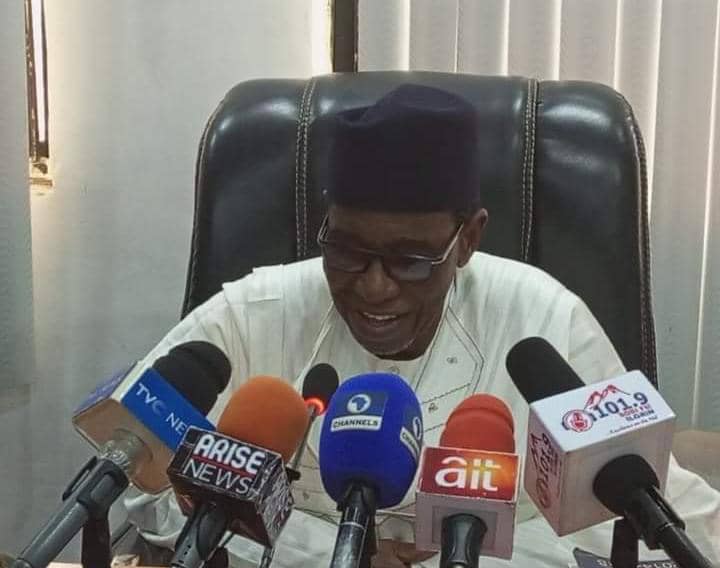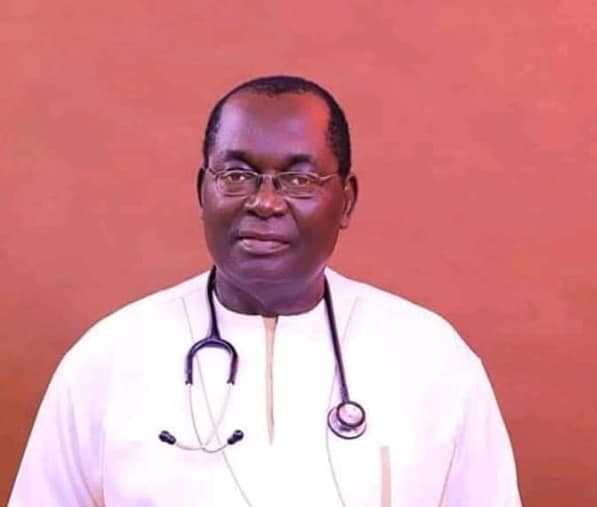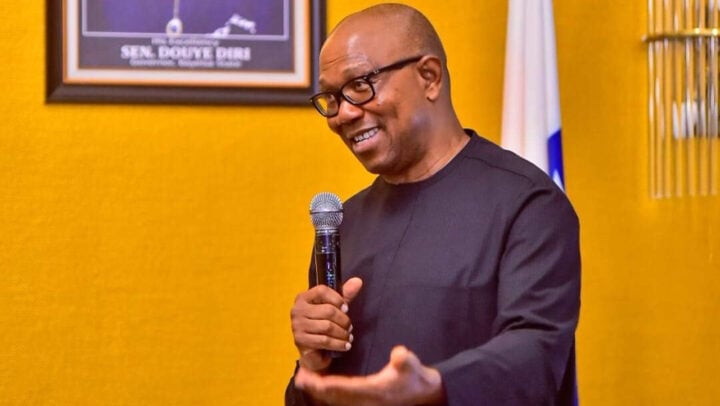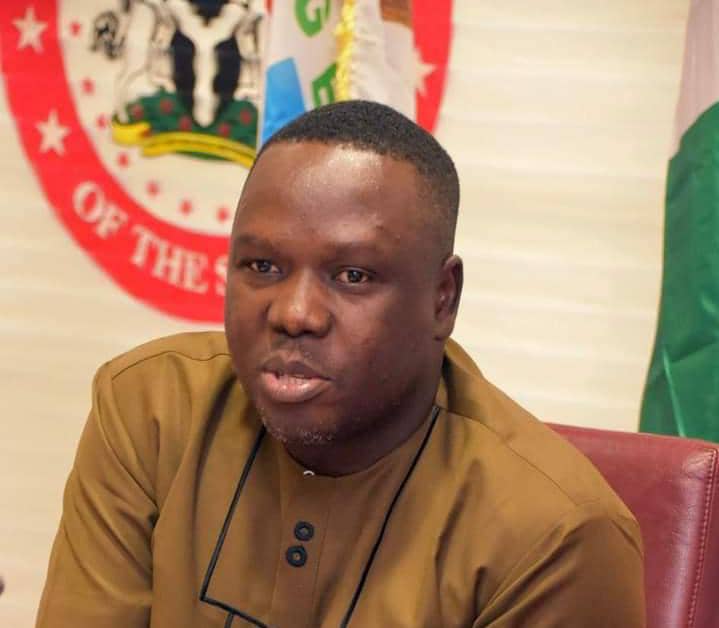NEW YORK, NEW YORK - SEPTEMBER 21: As world leaders gather in New York for the UN General Assembly, Mark Suzman, CEO, Bill & Melinda Gates Foundation, speaks onstage at The Goalkeepers 2022 Global Goals Awards, hosted by the Bill & Melinda Gates Foundation at Jazz at Lincoln Center in New York City. The event celebrates outstanding youth-focused work around the world that is directly linked to the UN’s 17 Sustainable Goals. (Photo by Kevin Hagen/Getty Images for Gates Archive)
The Bill & Melinda Gates Foundation has announced commitments totalling $1.27 billion to improve and save millions of lives around the world.
Speaking at the just concluded Goalkeepers summit in New York, Mark Suzman, CEO of the foundation, announced the first set of funding, set at $100 million to help alleviate the food crisis disproportionately impacting communities in Africa and South Asia and address its underlying causes.
He said this week at the United Nations General Assembly (UNGA) and the Goalkeepers summit “underscored the urgency of the challenges we face, and the promise of sustainable solutions that save and improve lives”.
Suzman added that the world “can get back on track toward the SDGs, but it’s going to take a new level of collaboration and investment from every sector. That’s why our foundation is significantly stepping up our commitment to help confront crises now and ensure long-term impact across critical determinants of health and development.”
Advertisement
He further explained that the new set of funding will address overlapping global crises that have reversed the progress already made toward achieving the UN Sustainable Development Goals (Global Goals).
Gates commit $912m to save 20 million lives in 3 years
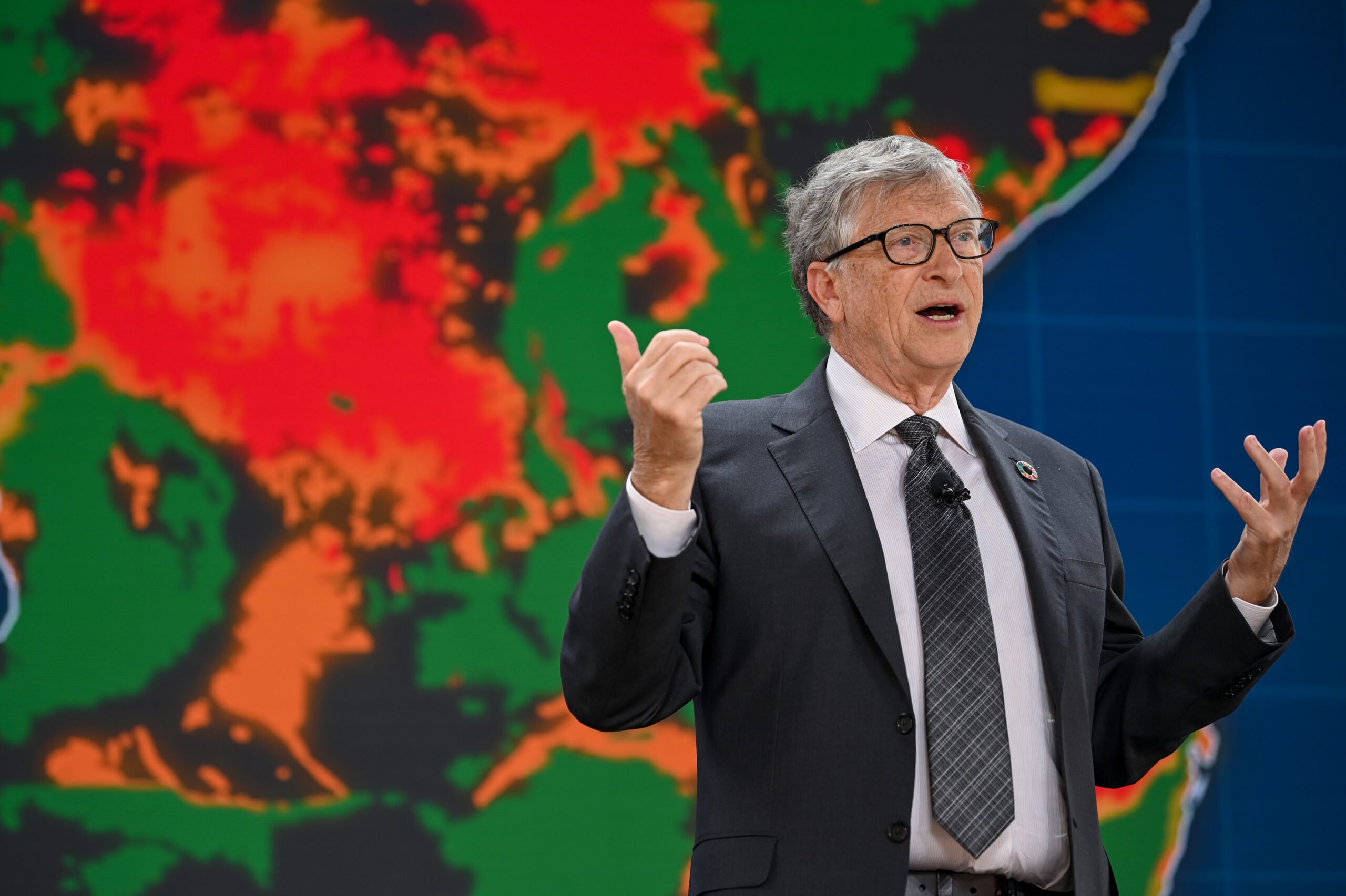
Speaking at the Global Fund seventh replenishment conference this week, Bill Gates, co-chair of the foundation, announced a $912 million commitment to the fund.
Recounting how much success the Global Fund has recorded in the last decade, Gates said to him, “the Global Fund itself is the most important innovation of all”.
Advertisement
The funding will go toward the Global Fund’s goal of saving 20 million more lives from HIV, TB, and malaria; building more resilient health systems to prevent future pandemics, and putting the world back on track to end these diseases by 2030.
The $912 million pledge is the foundation’s largest commitment yet to the Global Fund.
“We see the greatest progress when governments, the private sector, and local communities collaborate in global health programs,” Gates said.
“The commitment this week to combat preventable diseases and save millions more lives through the Global Fund replenishment is a great step forward in getting back on track to reach the Sustainable Development Goals.”
Advertisement
More funds to the hands of women
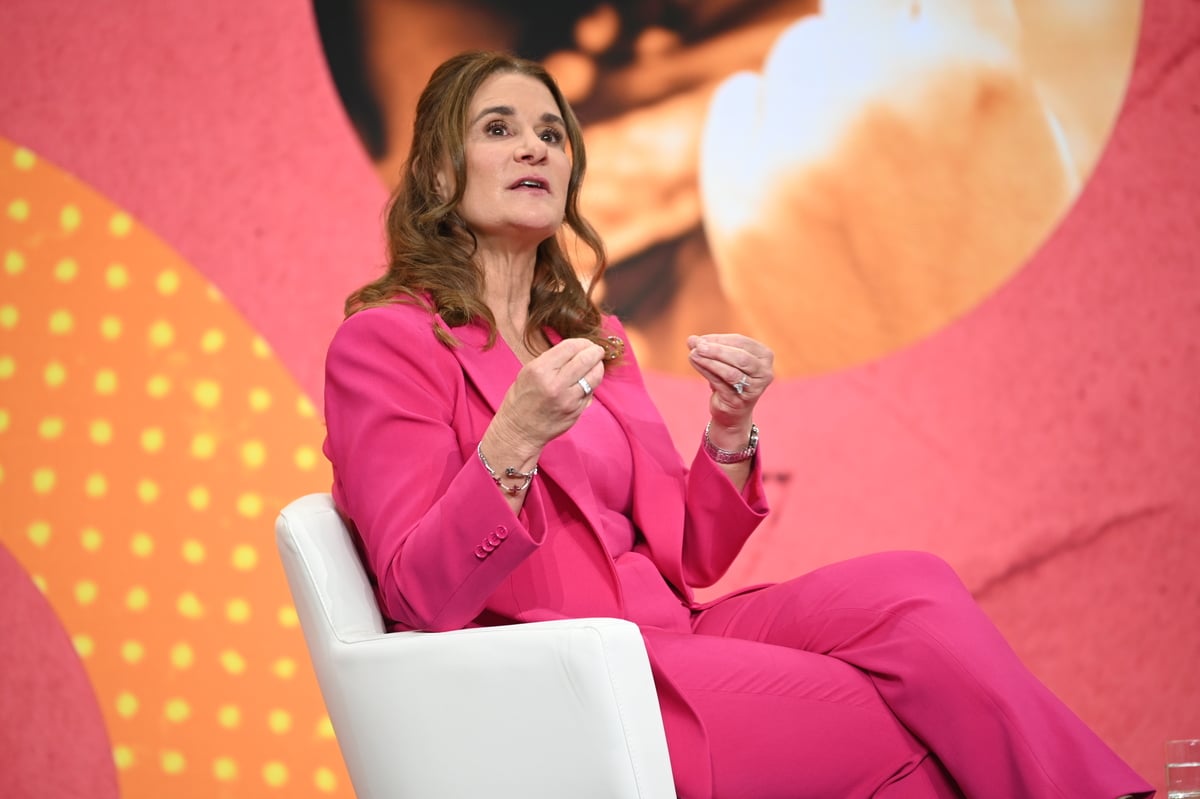
The foundation’s sixth annual Goalkeepers Report notes that nearly every indicator of the Global Goals is off track at the halfway point for achieving them by 2030.
Despite these challenges, the report highlights opportunities to accelerate progress by investing in long-term solutions and innovative approaches to entrenched issues, including poverty, inequality, and climate change.
Melinda French Gates, the co-chair of the foundation, reiterated her dogged commitment to gender equality, emphasising the need to get power — financial and otherwise — to women globally.
“The last time we gathered in person for Goalkeepers, we talked about how the most well-intentioned programs can perpetuate inequities if the communities they want to reach aren’t involved in the design,” French Gates said.
Advertisement
“A lot has changed since 2019, but one thing hasn’t: We won’t make progress toward the Global Goals unless those with lived experiences have a seat at the table.
“I’m proud of our Goalkeepers Award winners and the many partners from all corners of the world who are working to develop this next generation of leaders.”
Advertisement
The foundation committed $50 million to partners in Health Scholarship Fund to attend the University of Global Health Equity (UGHE) in Rwanda. This fund will support 75 percent women.
Here is a more detailed breakdown of how the funds will be spent:
Advertisement
$912m to fight AIDS, tuberculosis and malaria
This is the foundation’s largest commitment yet to the Global Fund. Since 2002, health programs supported by the Global Fund partnership have saved 50 million lives.
This funding will help accelerate efforts to end HIV, TB, and malaria by 2030 and build resilient health systems needed to protect against future pandemics.
Advertisement
It also will be instrumental in reducing the disproportionate impact of these diseases on women and girls.
$100m to alleviate the food crisis
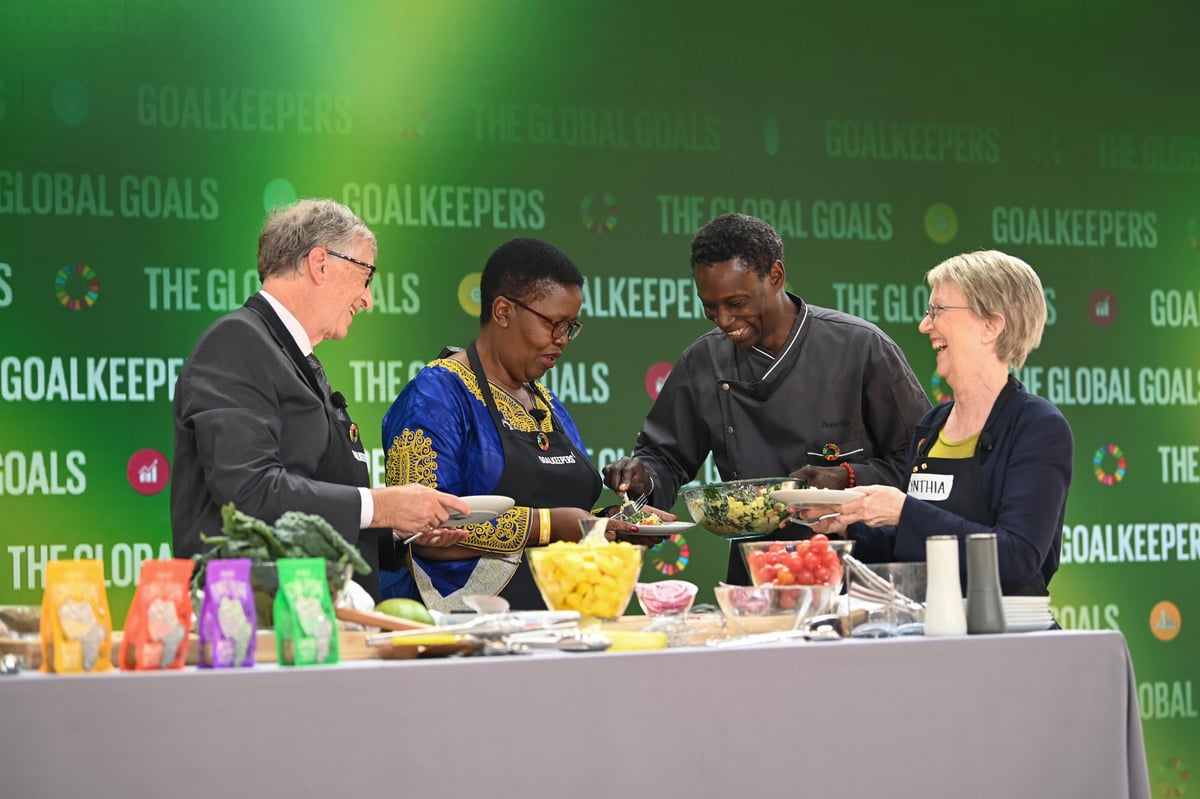
This funding will go to the Global Agriculture and Food Security Program (GAFSP) to support national governments in rebuilding resilient, sustainable local food systems
The African Fertilizer and Agribusiness Partnership (AFAP) to make fertilizers affordable and accessible for smallholder farmers
The CGIAR’s Nigeria-based International Institute of Tropical Agriculture research center to accelerate work that is already supplying farmers with improved and new varieties of crops, such as beans high in iron; sweet potatoes naturally rich in vitamin A; and naturally hardy cassava, millet, and sorghum
Working with partners to supply sustainable feed and fodder to African families that depend on livestock as a critical source of income and nutrient-dense food
Working with partners to strengthen local food systems by empowering women farmers with the tools and resources they need to succeed and support their communities
In addition, the foundation will double its previous commitment to the Child Nutrition Fund—from $10 million to $20 million.
The investment will support the fund’s expansion beyond ready-to-use therapeutic food to include preventative nutrition products for both women and children.
$200m to expand global digital public infrastructure
This funding will help expand infrastructure that low- and middle-income countries can use to become more resilient to crises such as food shortages, public health threats, and climate change, as well as to aid in pandemic and economic recovery.
This infrastructure encompasses tools such as interoperable payment systems, digital ID, data-sharing systems, and civil registry databases.
$50m for Health Scholarship Fund
This commitment is expected to help catalyze efforts to raise $200 million.
The scholarship fund will support students, 75% of whom are women, to attend University of Global Health Equity (UGHE) and help accelerate efforts to increase the number of health care workers in Rwanda and around the world.
Add a comment

